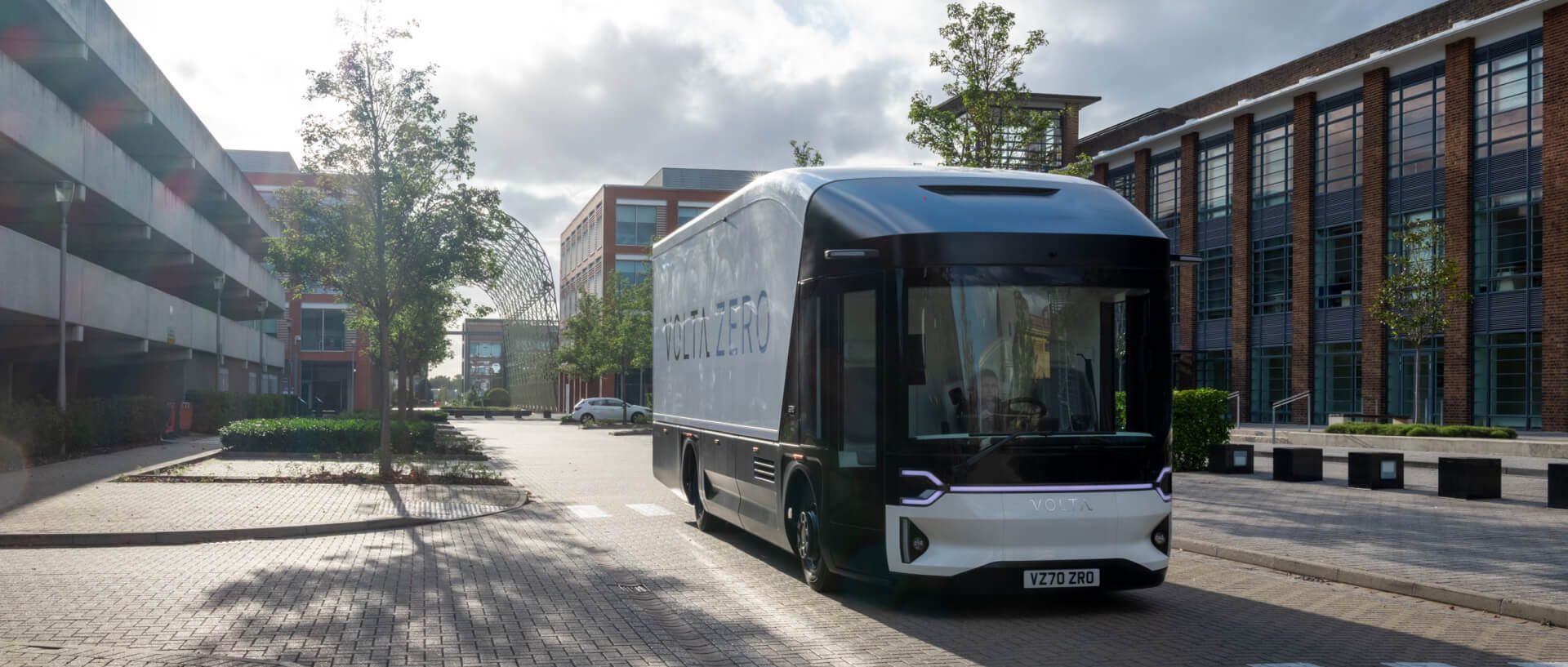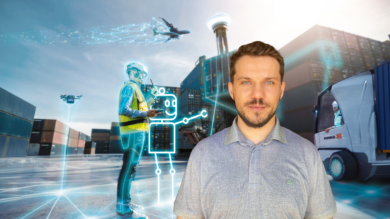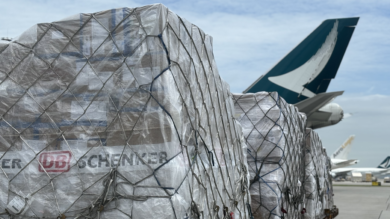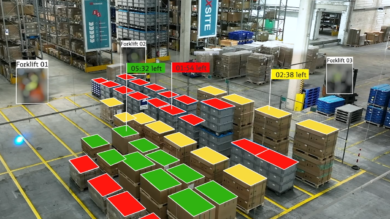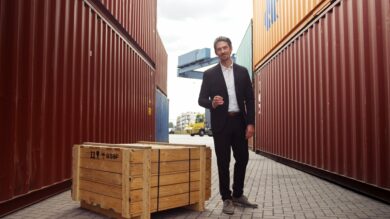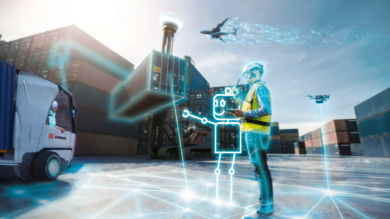More than 60 million trucks are driving around our planet, causing millions of metric tons of CO2 emissions. The global road freight sector is responsible for nine percent of global greenhouse gas emissions. It is time to change – time to revolutionize transportation – and time for the Swedish truck company, Volta Trucks. Logistics Matters met with the CEO for an inspiring interview about the future of land transportation. Meet Essa Al-Saleh, a man who studied Electrical Engineering and has many years of experience in leading a global logistics company. Now he aims to change the industry, one fully electric truck at a time. Volta Trucks will start the series production of 16 ton fully electric trucks within the next months, and in this interview, Essa Al-Saleh tells us all about it.
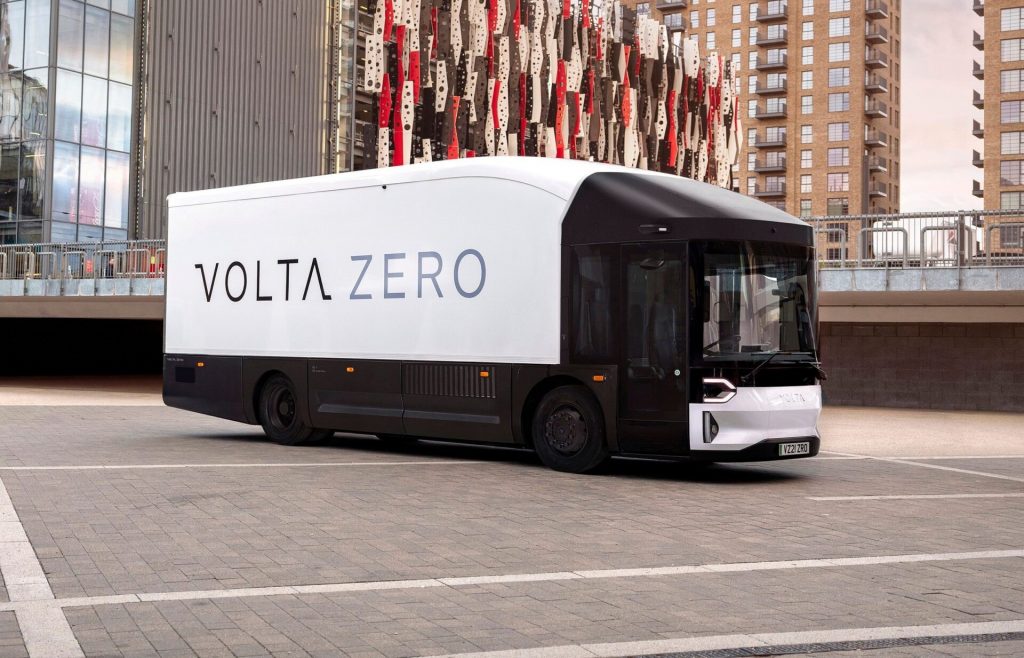
Logistics Matters: Volta Trucks has been developing high-speed electric trucks over the last years. When will we see the first Volta Zero Trucks on the road?
Essa Al-Saleh: We’re working at an industry-defining pace to get trucks on the roads as soon as possible. We now have the first generation of prototype vehicles running and experienced by customers. By the end of 2022, we will have built the second generation of prototype vehicles. They’ll be ready to be evaluated within a customer’s depots. Shortly after, we can become a vehicle manufacturer with the first customer trucks rolling off the production line. To summarize, within a few months, we will end the first part of our journey, developing our first vehicle. After that, we start the second phase of our journey as a manufacturer of customer trucks. That’s when we can truly start to address the societal issues, we set out to deal with.
Logistics Matters: Your trucks are an important step towards a more sustainable supply chain. But how much effort will it take to change the whole logistics industry?
“We are 100% focused on making positive change.”
Essa Al-Saleh: At Volta Trucks, we set out to electrify urban logistics because this is achievable today. We know that we cannot decarbonize all distribution by ourselves. So, we are encouraging collaboration and any perceived competitors to accelerate the electrification of their vehicles. The longer-haul use cases will likely take longer to electrify as the infrastructure needs to develop. Needless to say, we’ve always worked on the principle of the faster, the better.
Logistics Matters: What are the biggest problems in land transportation regarding sustainability, and what are your suggested solutions?
Essa Al-Saleh: The electrification of urban distribution is deliverable today, so this isn’t a problem. Technology for the longer haul use case vehicles is still developing. With our fully electric Volta Zero, we are delivering zero tailpipe emissions. In terms of wider sustainability, we have started to assess the complete environmental impact of our operations. From the supply chain to manufacturing to end-of-life. We are aligned to the UN Sustainable Development Goals. Still, the industry needs to take the same holistic view of sustainability. With that, we ensure that we are maximizing the actual societal benefit.
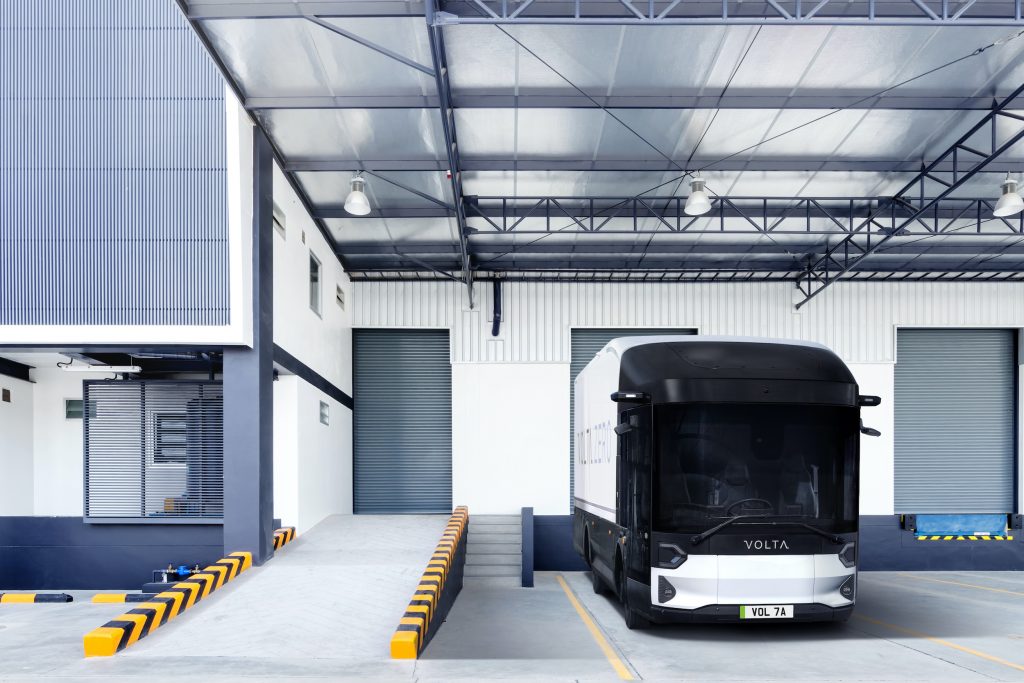
Logistics Matters: How important are global logistic partners to you as a very young company?
Essa Al-Saleh: Having partners and customers like DB Schenker, who are fully committed to sustainability, ensures that we stay true to our values and deliver the most sustainable solutions. You can see how DB Schenker pushes sustainability within land transport: having ordered nearly 1500 Volta Zero’s – the biggest order of fully electric trucks within Europe. We truly value such partnerships.
Logistics Matters: How does the mindset of all partners in the logistic supply chain have to change when it comes to sustainable delivery solutions?
Essa Al-Saleh: As the manufacturer aiming to deliver on our goals, we need all partners focus on sustainability. We have been very selective with our suppliers to ensure they share the same vision of success. Our condensed vehicle development schedule has excluded many suppliers from joining our journey. Ultimately, we need our partners to deliver 100%, and that takes a special commitment. That’s why we only select world-class partners to support our journey.
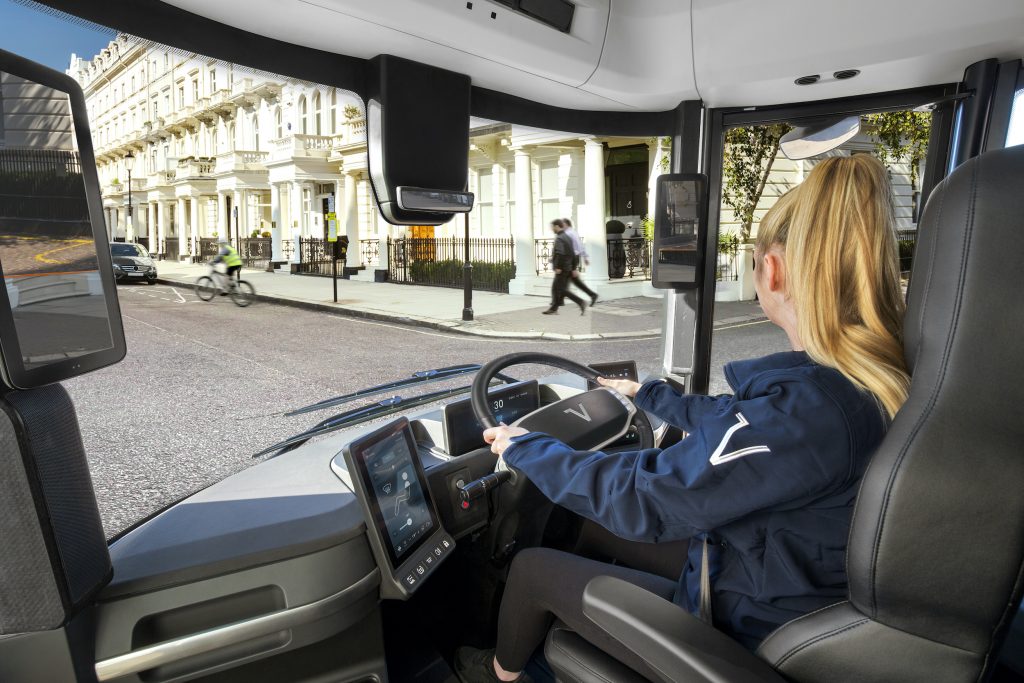
Logistics Matters: Are fully electric trucks a long-term solution or is it just a bridge technology?
Essa Al-Saleh: Put simply, fully electric trucks are the perfect zero tailpipe emission solution for certain use cases, such as urban distribution. Whether they prove to be the same ideal solution for long haul use cases, remains to be seen.
Logistics Matters: The Volta Zero has a range of up to 200 kilometers. Are you working on any higher?
Essa Al-Saleh: Today, no. We want to start addressing climate change and air quality issues now. We can do this with a fully electric urban distribution vehicle with a 200kms range. We already see significant customer demand for this vehicle. A higher range would demand more battery power, creating more weight and impacting the available payload. In addition, we’d need to rely on a public charging infrastructure. That’s not always consistently available across all markets.
“Every kilometer a fully electric truck drives positively impacts climate change.”
Logistics Matters: Not everyone is convinced of battery driven vehicles because of the natural resources needed, like cobalt or lithium. Why is it better than diesel?
Essa Al-Saleh: It’s true that today’s batteries contain precious metals. We work with a world-class battery manufacturer, Proterra, who ensure their sourcing and development is done most sustainably. We are seeing these precious metals recycled – from batteries into second life uses. We believe this should reduce the volume of raw materials extracted over time. Battery performance, sustainability, and technology are developing at a pace, but today’s batteries already deliver exactly what’s needed for today’s needs. Ultimately, every kilometer a fully electric truck drives positively impacts on climate change and air quality versus any diesel engine equivalent.
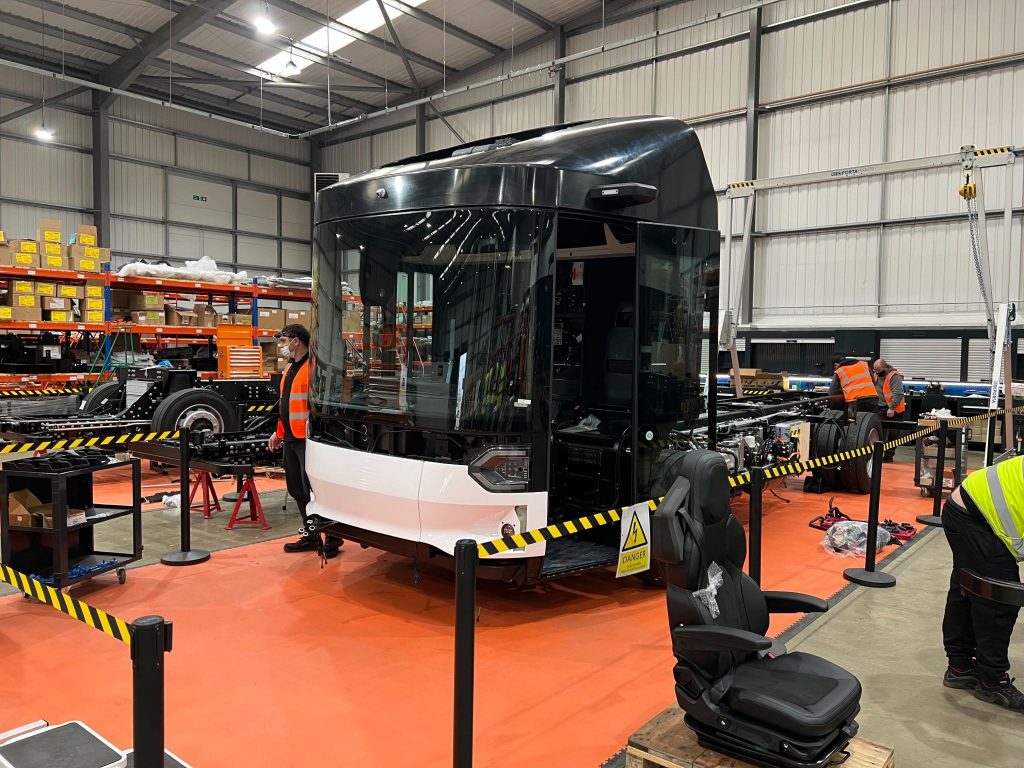
Logistics Matters: What are the goals for the future of Volta Trucks?
Essa Al-Saleh: For the short to medium term, we are focused on starting the production of the fully electric Volta Zero in early 2023. Simultaneously, we are focused on implementing our innovative Truck as a Service solution. This includes charging infrastructure and the setup of our Volta Truck Hubs as servicing facilities. We will deliver these initially in London and Paris. Then, quickly roll out into our other European launch markets in Germany, Spain, Italy and Netherlands. Soon after, in H2-2023, we will have a pilot fleet of vehicles running in the US. And on top of bringing our 16t and 18t vehicles to market in 2023, we are developing the next product family of 7.5t and 12t vehicles. This will feature the same safety and environmental benefits, broadening the product portfolio and appeal. It’s not easy, but it’s a fascinating and rewarding journey we’re on to deliver on the societal goals we set ourselves at the outset.
Published: October 2022


